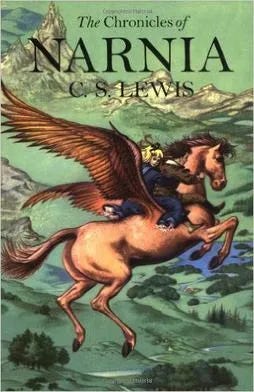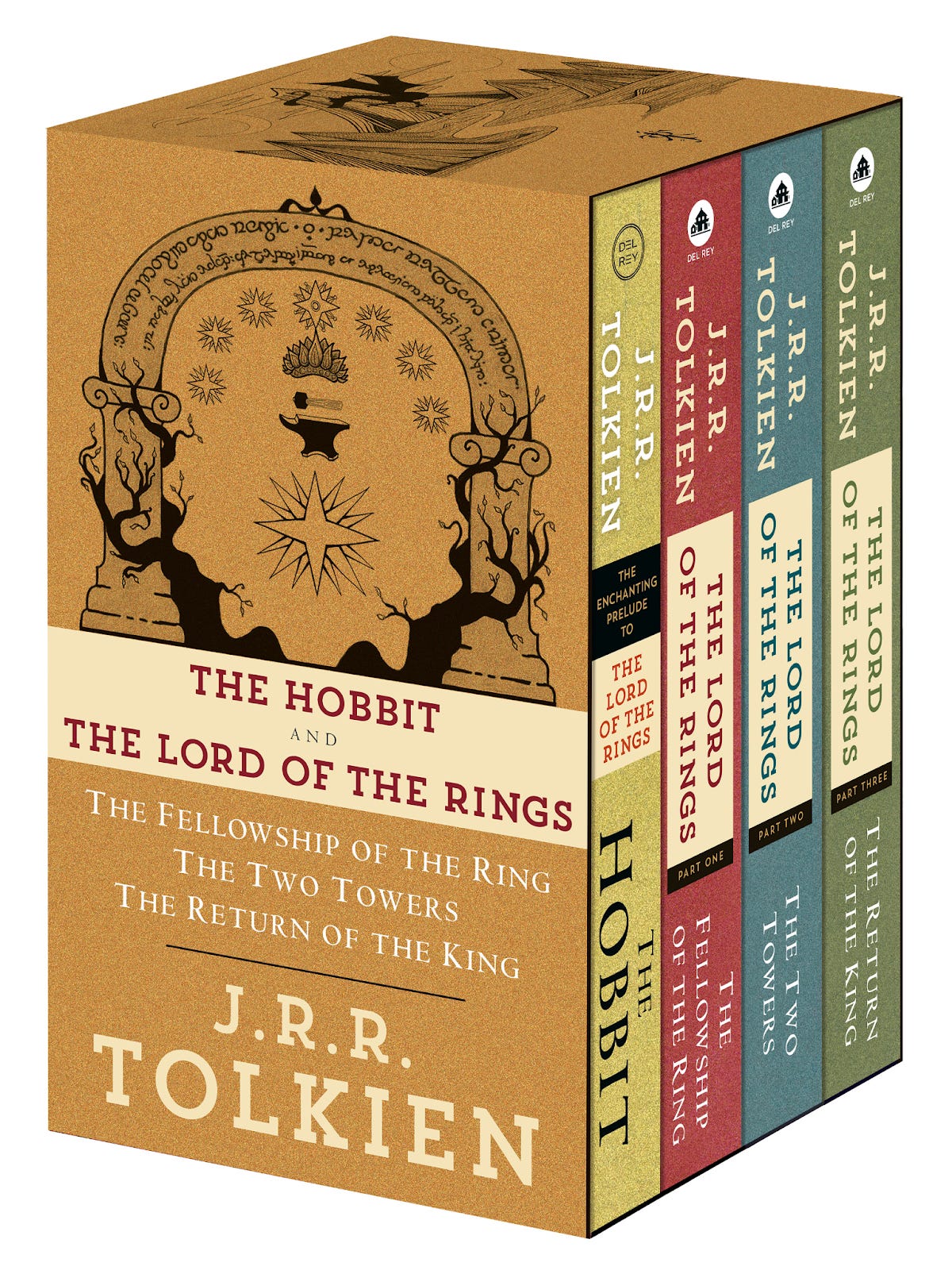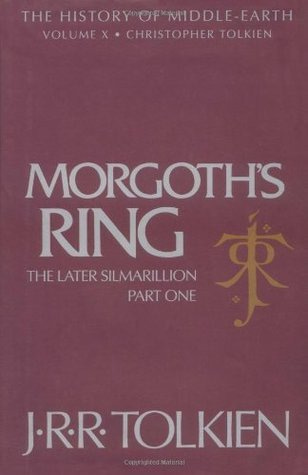Theology in Story
Narnia and Middle-Earth
One of the first things people remember about Narnia - after "portal fantasy" and "talking animals" is that "Aslan is Jesus as a lion." To riff off Lucy's protest to Aslan in the story, "it isn't Narnia; it's you" - or rather, both - that people remember. C. S. Lewis said it once in terms that clear: he didn't write Aslan as an allegory of Jesus, but as an attempt to show how it would be if Jesus had come into another world as a lion.
However, it didn't start that way. Lewis explained once that his first conception of Narnia was as a picture of a faun in the woods by a lamppost. The story expanded as he wrote it, and Aslan came in much later.
So, we can ask ourselves: what did Aslan do for the story? How is Lewis's story impacted by his decision to so clearly have Jesus be a character? Lewis's friend J. R. R. Tolkien took much the opposite approach in his stories, where God is mentioned in some of the background lore but not present in the story itself - what does that do to Tolkien's stories?
In fact, Tolkien wrote the opposite way from Lewis. When he first turned his worldbuilding into prose story, the cosmogonic tale - involving "Eru Illuvatar" "the One All-Father" creating the world through the song of the Ainur - was there from the beginning. But in Lord of the Rings, Eru is never even mentioned except occasionally in elliptical terms. Even in Silmarillion, we read that Eru generally doesn't act in the world (with the one exception of the destruction of Numenor), leaving that to the Valar.
Commentators have suggested that Tolkien did this to worldbuild a version of pagan myths that still had a Christian monotheistic worldview. After reading the early drafts (Book of Lost Tales) where the Valar are occasionally equated with the pagan Germanic gods, that's very likely one inspiration. But either way, Tolkien kept all theology in the background for all the stories published during his lifetime.
As Gandalf said when telling Frodo that it wasn't just chance he'd found the ring, "I can put it no plainer" in telling who had arranged it. Similarly, Tolkien had decided he could be no clearer on the subject.
Meanwhile, Lewis brought it front and center. As his friend Dorothy Sayers wrote in the preface to her radio-dramas about the life of Jesus, "the dogma is the drama." The plot of Narnia is, increasingly as the saga goes on, the acts of Aslan who is Jesus.
Tolkien kept that all in the background. For example, fans have frequently guessed that Eru made Gollum fall off the ledge at the Cracks of Doom. But even if that's a correct interpretation (and I disagree), it's well in the background of the actual story.
But there're many other differences between the Chronicles of Narnia and Lord of the Rings. The Chronicles of Narnia are children's stories. They fit into the children's adventure genre, along with previous authors such as E. Nesbit. (Lewis liked her books; I do too.) The plots and worldbuilding are thin; Tolkien famously once reduced Lewis to silence by asking where the dwarves had gotten their sausage.
Meanwhile, Tolkien and his publisher lamented how Lord of the Rings didn't fit any preexisting genres. It ended up founding one of its own: the adult fantasy genre. It's trying to do a different thing than Narnia.
Still, I think there are some differences which are clearly related to how they handle their theology. In Narnia, half the time, there is no overarching plot or goal for our protagonists to achieve. They do something small (in Lion, Witch, and Wardrobe and Last Battle, where they fight a battle only for Aslan to win it) or something mostly unrelated (in Magician's Nephew and Dawn Treader where they adventure miscellaneous quests), only for Aslan to win the victory in the end. Even in Prince Caspian, Aslan builds on the protagonists’ efforts to give them a victory bigger than anything they could've won themselves.
This might be good theology (though perhaps Tolkien would disagree), but it's not the best story. Lewis shows the atmosphere of Narnia very well, which I suspect was his main goal. But, his plots end up rendering our protagonists' efforts mostly moot. Regardless of (for instance) whatever Peter did in the battle in Lion, Witch and Wardrobe, Aslan would still have won it just the same. Perhaps it's significant that the two exceptions, Silver Chair and Horse and His Boy, were written later in Lewis's life? He might well have learned to improve his plots.
Meanwhile, the victory in Lord of the Rings is achieved by our heroes. In Silmarillion, the Elves and Men are rescued by the Valar. In Lord of the Rings, it's thanks to a plan thought up and enacted by our protagonists. It did almost fail many times - in Gandalf's words, it was "a fool's hope" which succeeded thanks to "chance, as we say" (an elliptical reference to Eru's Providence). But this chance (or Providence) only brought the victory thanks to our protagonists' effort. If Frodo hadn't brought the Ring to the ledge of Mount Doom, or if the armies of the West hadn't distracted Sauron, no "chance" would have destroyed the Ring.
For all the differences in how Lewis and Tolkien compare God's work with humans', Tolkien's approach has other clear advantages in terms of how he portrays God.
As Sayers wrote in that same preface, to do an adequate treatment of the story of God would require "literally superhuman genius". She (wisely) chose in her play-cycle to crib from the Bible as much as possible, rather than put her own words in Jesus' mouth. This meant Sayers could, and often did, respond to criticism of her plays by arguing that the things the critics objected to were already there in the Bible.
Lewis couldn't do this. He wasn't writing what Jesus did, but what he imagined Jesus would do in an imaginary setting. When critics object to things Aslan does in the books (whether strategic decisions like how he waits a hundred years before rescuing Narnia from the White Witch, or how he relates to individual characters), Lewis or his defenders can try to argue this's consistent with Jesus' character - but they have to make argument.
As a Christian myself, I think Lewis is more often correct, or at least defensible, than most of his critics would say. But when we're discussing this question, the literary criticism has wrapped itself in a theological debate. It might be a good debate for some people - I've occasionally gained theological insights from discussions like this. But even for people (like me) who enjoy discussing Christian theology, it's usually best to do that by itself without mixing in one particular author's interpretation of it.
What's more, Lewis ratchets up the difficulty harder by trying to reenact Christian theology in Narnia - but without perfectly matching.
For example, in The Lion, The Witch, and the Wardrobe, we see Aslan dying to save Edmund's life and rising again. This's a powerful echo of Jesus' death and resurrection. But it's only an echo. It saves Edmund, personally, and no one else. After rising again, Aslan overthrows the evil White Witch's power and frees Narnia, but that isn't made possible by his death. There's no clear connection; he was planning to do that anyway before Edmund's treason was brought up.
This's similar to the echo of Adam and Eve's sin in Magician's Nephew. We have someone who violated a Divine prohibition to eat a forbidden fruit - but that's Jadis herself. We have someone who deafens himself to Aslan's voice - but that's Uncle Andrew. King Frank and Queen Helen don't sin. In both cases, we see there's an echo of the Biblical story, but theologically-vital details are different.
And yet, later stories treat the theology as the same as Biblically-based theology on Earth. Sin has entered into Narnia, and come to all, as we see in the stories. The Stone Table where Aslan died is treated as a holy relic. By Aslan's death, Tirion mentions later in Last Battle, "all Narnia was saved". But that isn't exactly the story we've read.
Tolkien mostly avoids these problems by usually not showing God acting directly in his stories.
Eru Illuvatar (as the Elves in the story call God) has only acted a few times in the story, meaning that only a few such actions need to be defended as consistent with Christian doctrine on God's character. The Valar can and do make mistakes, but they don't implicate Eru. Fans can and sometimes have criticized Eru for things like allowing the world to be marred in the first place - but that merely references an existing real-world debate about the "Problem of Evil."
In fact, Eru is never even mentioned in Hobbit or Lord of the Rings. Even to someone who's read Silmarillion, it might seem that Tolkien escapes criticism here by simply not saying much of anything about him. But in "Athrabeth Finrod a Andreth" - which Tolkien intended to be published as part of Silmarillion - he does go much farther. The elf Finrod and human woman Andreth discuss mortality and corruption caused by the powers of evil, and conclude that human mortality must be a curse that God laid on them in their unrecorded past. Further, Finrod speculates, at some point in the distant future Eru [i.e. God] must enter into the world Himself to undo the marring caused by Morgoth [i.e. the devil]. With this, Tolkien writes a facsimile of Christian theology into his universe.
When Tolkien died with the Silmarillion still incomplete, his son Christopher Tolkien didn't find "Athrabeth" in time to include it. It was eventually found and published in History of Middle-Earth volume 10. I'm very sorry it wasn't found earlier; that would have vastly changed people's view of Middle-Earth.
But Tolkien still doesn't show the dogma onstage. The Fall is in the distant past, and the Incarnation is in the distant future. (Tolkien implied several places that Middle-Earth was the distant past of our world, which would indeed put Jesus in the distant future.) Our characters can only reason vaguely that one must have happened, and the other must happen in some unknown way.
For all the flaws Lewis introduced into his Narnian theology, and all the flaws in his story, I agree with him over Tolkien that clearly-shown theology is not fatal to myth.
The other two Chronicles of Narnia I didn't fault above - Horse and His Boy and Silver Chair - do have well-constructed quest plots where our protagonists bring about the triumph themselves. Eustace and Jill rescue Prince Rillian, and Shasta escapes Calormen and warns the Archenlanders. They do it thanks to Aslan's help, it's clearly shown, but they do it themselves. Aslan's help doesn't inherently lessen the stories.
This is perhaps not the epic "myth" Tolkien referred to, but it's a good story. And, the same thing can be done with myth.
For an authentic mythic example of this, I would point to what folklorists have termed Migratory Legend 5050 where medieval peasants told of the fairies receiving a sign from God that the fairies, too, could be saved. I think Tolkien would respond by faulting this legend too; he did fault Beowulf and the King Arthur cycle for being too explicit in their Christianity. But it seems to me as authentic and truly "legendary" as many of the legends he lists in his "On Fairy-Stories".
If Tolkien thought there was a division between the legends he lists and stories like Legend 5050, he hasn't made it clear. He claims in his "On Fairy-Stories," in a different context, that things which are regarded as possible in "the Primary [i.e. real] World" cease to be fantasy. But that doesn't exclude them from fantasy or legends, any more than it forbids legendary characters to feast because eating is possible in our world too.
But still, Lewis's approach makes the storyteller's job more difficult.
On the one hand, people who make God a character in their stories have a "literally superhuman" job to portray God well. Most failings there will appear as failings in their stories - whether turning them into religious lectures and losing the audience, or simply making them bad stories - if not worse.
But on the other hand, even if they do it well, they've still given themselves a smaller audience. Lord of the Rings has become a culturally-defining epic, enjoyed by people of every or no religion. The Chronicles of Narnia are found in (the children's section of) public libraries, but they're more pigeonholed. Part of this is their comparative literary merit, but I don't believe all.
So, I don't think Tolkien's approach is necessarily superior in theory. But in practice, I do think it's usually better.





This is a fascinating analysis. I have one caveat, though. That caveat is based on what Tolkien called the "eucatastrophe" -- the sudden event that leads to a happy ending. Eucatastrophe figures prominently in both LOTR and the Narnia books. The question is, what makes a eucatastrophic ending satisfying? What saves it from being a disappointing Deus Ex Machina?
I think the answer lies in the way in which the ending of a story is merited. Today we are used to heroes meriting their triumph through competence. This could be scientific competence as in an SF story, or military competence, as in a thriller or war story. But in the fairytale tradition, particularly Arthurian tradition from which Lewis and Tolkien were drawing, the heroes merited their triumph through virtue. Thus Sir Gawain survives the blow of the Green Knight by refusing the advances of his seductive wife, though he receives a nick for his deception over the lady's sash.
Thus it is Frodo's mercy to Gollum which merits the destruction of the ring, even as Frodo succumbs to its corrupting influence. Similarly, most of Lewis's characters merit their triumphs by virtue, not competence. Aslan saves the day as a reward for their virtue.
So I can't quite accept the idea that those books in which the characters play a larger or more direct role in the outcome are thus better plotted. Rather, I would suggest that the plots are classic fairytale plots in which the eucatastrophic ending is merited by virtue rather than competence.
I've read the Narnia tales once, (except for the first book.) It just isn't a good read to me. Other kids books I've read more than once; All of A.A. Milne, Wizard of Oz, Wind in the Willows, The Borrowers.
The Lord of the Rings is an all time great, and as you say in the league of adult books.